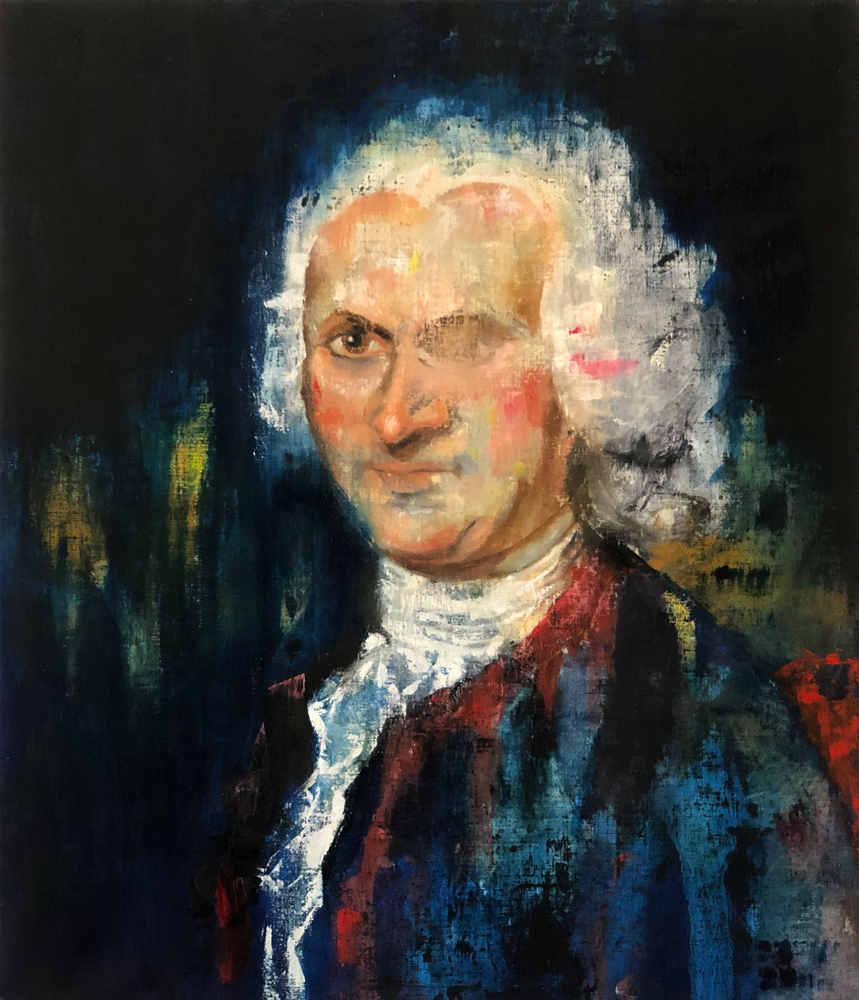“Man was born free, and everywhere he is in chains”
Swiss born Jean-Jacques Rousseau was one of the greatest European thinkers of the 18th century and his work inspired the leaders of the French Revolution and influenced what became known as the Romantic generation. His mother died soon after his birth and he only had a little formal education from his father before he went into exile and Rousseau was parceled out to a country minister and then an uncle. He led an itinerant lifestyle wandering from job to job and having five illegitimate children by an uneducated serving girl.
Jean-Jacques Rousseau, 2018 Oil on Linen 66x56 cm (Private Collection - UK)
Rousseau reached Paris in 1742 and met Denis Diderot, another provincial man seeking literary fame. He contributed an article about music to Diderot’s Encyclopedia but it was his prose that brought him his lasting reputation. In 1750 he published his first important work 'A Discourse on the Sciences and the Arts' with the central theme that human beings were born good but become corrupted by society and civilisation. In 'Discourse on the Origin of Inequality' he claimed that original man, while solitary, was happy, good and free. The vices dated from the formation of societies, which brought comparisons and, with that, pride. 'The Social Contract' of 1762 suggested how man might recover his freedom in the future. It argued that a state based on a genuine social contract would give men real freedom in exchange for their obedience to a self-imposed law. Rousseau described his civil society as united by a general will, furthering the common interest while occasionally clashing with personal interest.
Jean-Jacques Rousseau, 2017 Oil on Paper 28x28cm (Available for Sale)
Rousseau’s political philosophy has had an enormous influence providing the movements leading up to the French Revolution with their emotional and intellectual fuel. It offered a different conception of democracy from John Locke’s, one which flourished and was actively followed until the late 20th century. This forcible imposition of the general will is the opposite of the Locke model preserving individual free will, and became the basic idea underlying the totalitarian movements of Fascism and Communism. His philosophy claimed to represent the will of the people while denying individual rights, allotting a key role to charismatic leaders.

